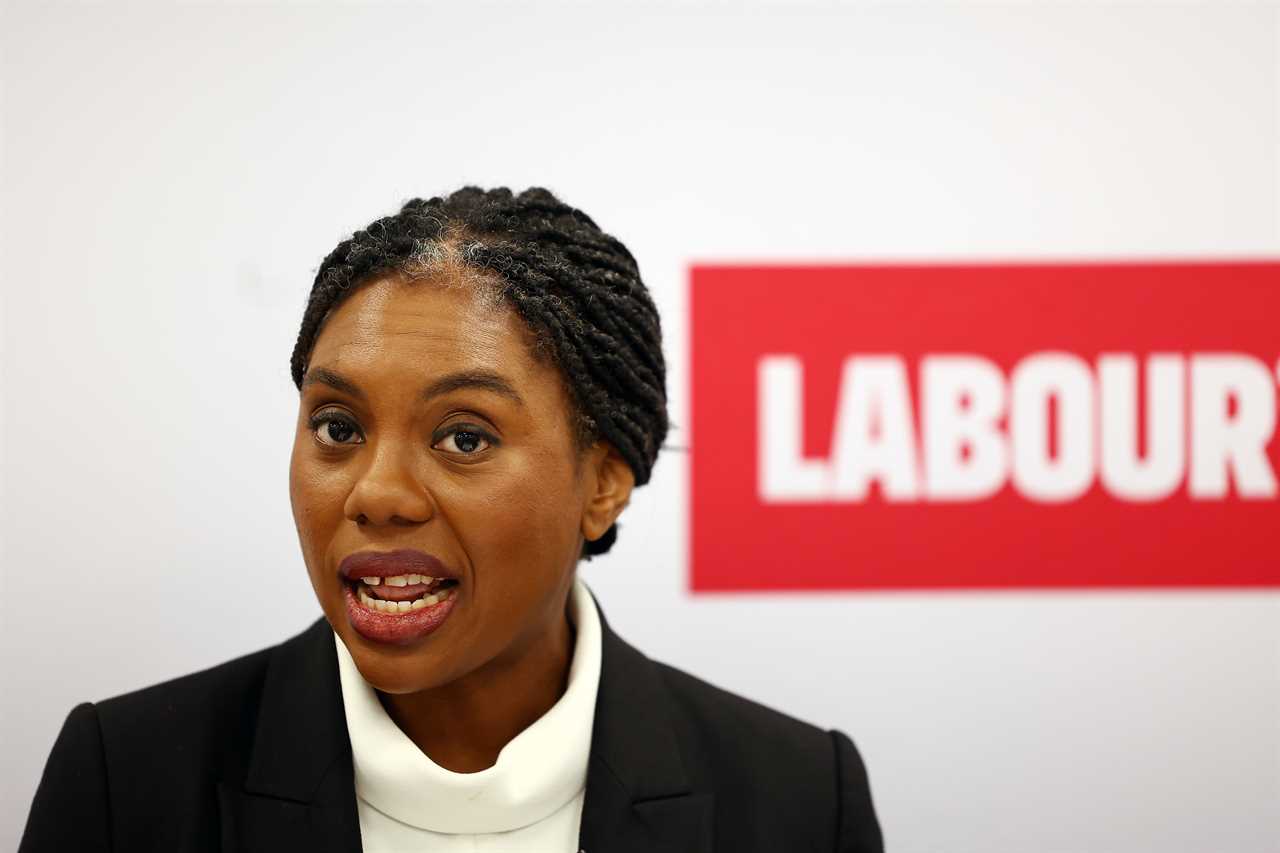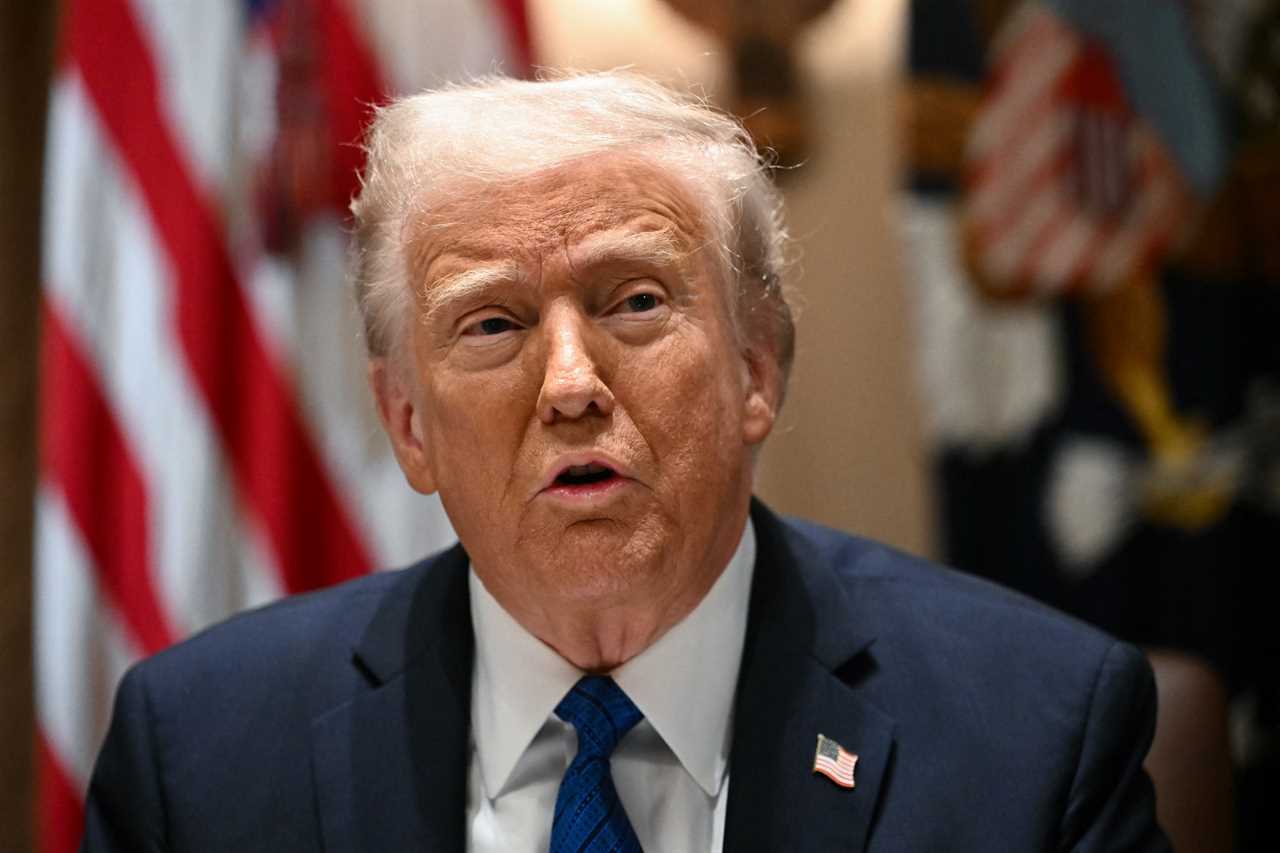
Top Tory Leader Aligns with US Former President on Expression Rights
Kemi Badenoch, a prominent figure in the Conservative Party, has publicly supported former US President Donald Trump's criticisms, highlighting her worries about the state of free speech in the United Kingdom. Her remarks come amidst growing debates over the balance between public safety and the right to express dissenting opinions.
Case in Point: Legal Action Against Protestor Sparks Debate
The concern over free speech was recently underscored by the legal proceedings involving Livia Tossici-Bolt, a British woman accused of violating a Public Spaces Protection Order. Ms. Tossici-Bolt was seen holding a sign that read "here if you want to talk" outside a Bournemouth abortion clinic. Her actions, intended as a personal invitation for dialogue, led to her being taken to court, raising questions about the limits of protest and expression.
US State Department Raises Eyebrows Over UK’s Expression Policies
The US State Department took an unusual step by commenting on the matter, expressing its unease over the restrictions on freedom of expression in the UK. In a statement posted on social media platform X, the department emphasized the importance of upholding human rights and fundamental freedoms, yet voiced specific concerns regarding recent legal actions against individuals exercising their right to speak.
Badenoch Criticizes Legal Overreach in Protecting Free Speech
Responding to these developments, Badenoch asserted that while the UK upholds the principle of free expression, current laws are being stretched beyond their original purpose. She warned against the potential persecution of individuals merely for sharing their viewpoints, suggesting that such measures could undermine the foundational liberties that the nation prides itself on.

Echoes from the US: Vice President Raises Similar Concerns
The dialogue on free speech isn't limited to Badenoch. Earlier in the year, US Vice President JD Vance also voiced his apprehensions regarding Britain's approach to expression and immigration policies. Vance criticized what he perceives as a regression from the values that emerged victorious from the Cold War era, particularly highlighting the impact on religious freedoms for Britons.
Impact on UK-US Relations: A Shared Commitment to Rights
Despite these criticisms, the US State Department reiterated the mutual respect between the UK and the US concerning human rights and fundamental freedoms. However, the highlighted issues suggest areas where both nations can engage in meaningful dialogue to ensure that the right to free speech is preserved without compromising public safety and order.
Looking Ahead: What This Means for Free Speech in the UK
The ongoing debate raises important questions about where the UK draws the line between protecting public spaces and upholding individual rights to express controversial or dissenting opinions. As the case of Livia Tossici-Bolt moves forward, the outcome could set significant precedents for how free speech is handled in future scenarios involving sensitive topics.
Public Reaction: Divided Opinions on Free Speech and Safety
Public opinion appears split on the matter. Supporters of stricter regulations argue that maintaining order around sensitive locations like abortion clinics is essential for public safety and the rights of those seeking services. On the other hand, advocates for free speech emphasize the importance of allowing individuals to express their views without fear of legal repercussions, viewing such rights as fundamental to a democratic society.
The Road Ahead: Balancing Rights and Responsibilities
As the UK navigates these complex issues, the challenge lies in finding a balance that respects individual freedoms while ensuring that public spaces remain safe and accessible to all. The support from figures like Kemi Badenoch indicates a growing movement within the political landscape that seeks to reassess and potentially reshape the current framework governing free expression.
Conclusion: A Critical Juncture for Free Speech in the UK
The intersection of politics, law, and personal freedoms places the UK at a critical juncture regarding free speech. With influential voices both domestically and internationally weighing in, the decisions made in the coming months will likely have lasting implications for how expression is managed and protected in the United Kingdom.
Frequently Asked Questions
How does the legislative process work?
The legislative process typically involves several stages, including proposal, debate, amendment, and voting. A bill must be approved by both houses of the legislature before being sent to the head of state for approval or veto.
What is the function of the executive branch?
The executive branch is responsible for implementing and enforcing laws, managing the day-to-day operations of government, and administering public policy. It is headed by the president or prime minister, depending on the country's system.
What is political accountability?
Political accountability refers to the obligation of elected officials and government institutions to be answerable to the public for their actions and decisions. Mechanisms for accountability can include elections, audits, and transparency initiatives.
What are civil rights?
Civil rights are the rights that protect individuals' freedoms from infringement by governments, social organizations, and private individuals. These rights include the right to free speech, freedom of religion, and the right to due process.
What is the role of a politician?
A politician is an individual who is actively involved in politics, typically as a member of a political party or a government. Their primary role includes representing the interests of their constituents, making decisions on public policy, and contributing to the legislative process.
What are the different types of political systems?
Political systems can be categorized into several types, including democracy, authoritarianism, monarchy, and oligarchy. Each system has distinct characteristics regarding how power is obtained and exercised, and how citizens participate in governance.
Statistics
- Approximately 60% of eligible voters in the United States participated in the 2020 presidential election, marking the highest turnout rate in over a century.
- According to recent studies, around 75% of Americans believe that campaign financing significantly impacts election outcomes.
- Studies show that political polarization has increased significantly, with 80% of individuals stating they have little to no contact with those of opposing political views.
- Research indicates that social media platforms play a role in shaping public opinion, with 70% of users getting their news from these sources.
- In many countries, political parties receive about 60% of their funding from private donations, raising concerns about transparency and influence.
- Data reveals that around 40% of the global population lives under some form of authoritarian regime, affecting their political freedoms.
- Research indicates that around 80% of individuals in democracies feel that their government does not adequately represent their interests.
- Surveys show that nearly 70% of voters prioritize environmental issues when selecting candidates for public office.
External Links
How To
How To Educate Yourself on Political Issues
Understanding political issues requires a proactive approach. Start by identifying the topics that interest you most, such as healthcare, education, or climate change. Utilize reputable news sources, academic journals, and think tanks to gather diverse perspectives. Attend local town hall meetings, forums, or lectures to engage with experts and community leaders. Additionally, consider following podcasts or online courses that focus on political education. Engaging in discussions with friends or participating in online forums can also enhance your understanding of complex issues and current events.
Did you miss our previous article...
https://hellofaread.com/politics/labour-considers-deporting-asylum-seekers-to-safe-countries
 PoliticsRoyaltySoap OperaGamingMoneyPrivacy PolicyTerms And Conditions
PoliticsRoyaltySoap OperaGamingMoneyPrivacy PolicyTerms And Conditions
